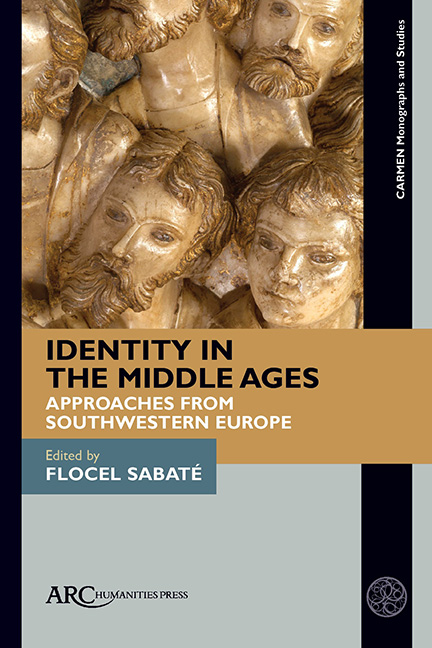Book contents
Chapter 14 - The Breakdown of Vertical Solidarity among the Late Medieval Basque Nobility
Published online by Cambridge University Press: 20 January 2022
Summary
SOLIDARITY AND IDENTITY are relatively new concepts in medi eval history and, although not entirely without precedents, are assuming an increasing role in recent research undertaken in Spain. Their steady advance coincides with the influence of ideas and perspectives introduced from Anthropo logy and Socio logy, such as relational and network analysis, and is perhaps a response to the long-standing historio graphical approaches of E. P. Thompson and Eric Hobsbawm, and more remotely derived from the work of Karl Marx and Max Weber. The background to all this is the old confrontation between two different views of historical social relationships: contradiction and conflict, or consensus and solidarity. The importation of tools from other social sciences is not new: it has facilitated excellent results in medi eval history, particularly in the Annales school, with the work of celebrated scholars such as Duby, Le Goff, Schmitt, and Gurevich, all of them inspired by Marc Bloch.
Identity is such a broad and flexible concept that it can be approached in a number of different ways. By nature, it is contextual, and its origins are anthropo logical, but here it is not held up as a key to understanding medi eval society, though it is employed in this way at certain analytical levels.
As for solidarity, again a concept imported from anthropo logy, it has been rela-tively little used by historians, perhaps because of the influence of certain theoretical paradigms. The concept has not, for example, been used—at least among Spanish medi evalists— as a paradigm for explaining society in general in the way that “class” has, however much of a crisis the latter methodo logy may find itself in. In this regard, it is worth bearing in mind Peter Burke's analysis (following Thompson) of the concept as a nonabstract social object defined by popular awareness of it. If, for example, during the late medi eval and early modern periods the poor had not yet acquired sufficient class awareness, it was precisely because “vertical solidarity” still outweighed it. In our own ambit, the notion of solidarity—in the sense of reciprocity—has been used to define certain forms within medi eval Christian spirituality, and, above all, certain types of relationship within peasant communities. In summary, solidarity has been regarded principally as a valid concept for referring to horizontal relationships within nonhierarchized or specific social groups.
- Type
- Chapter
- Information
- Identity in the Middle AgesApproaches from Southwestern Europe, pp. 293 - 308Publisher: Amsterdam University PressPrint publication year: 2021



